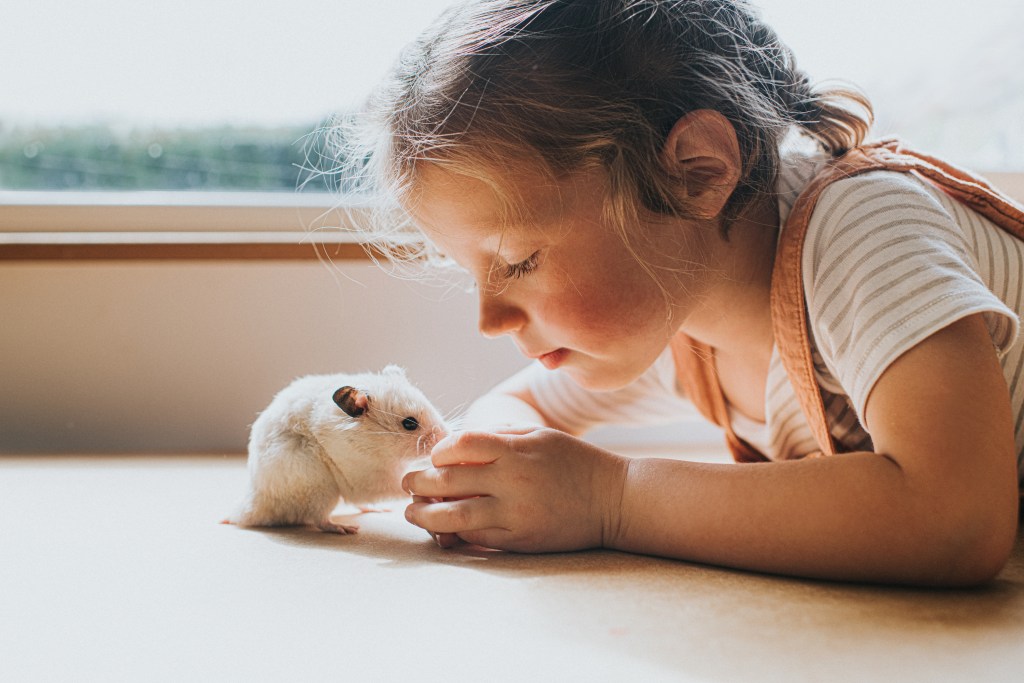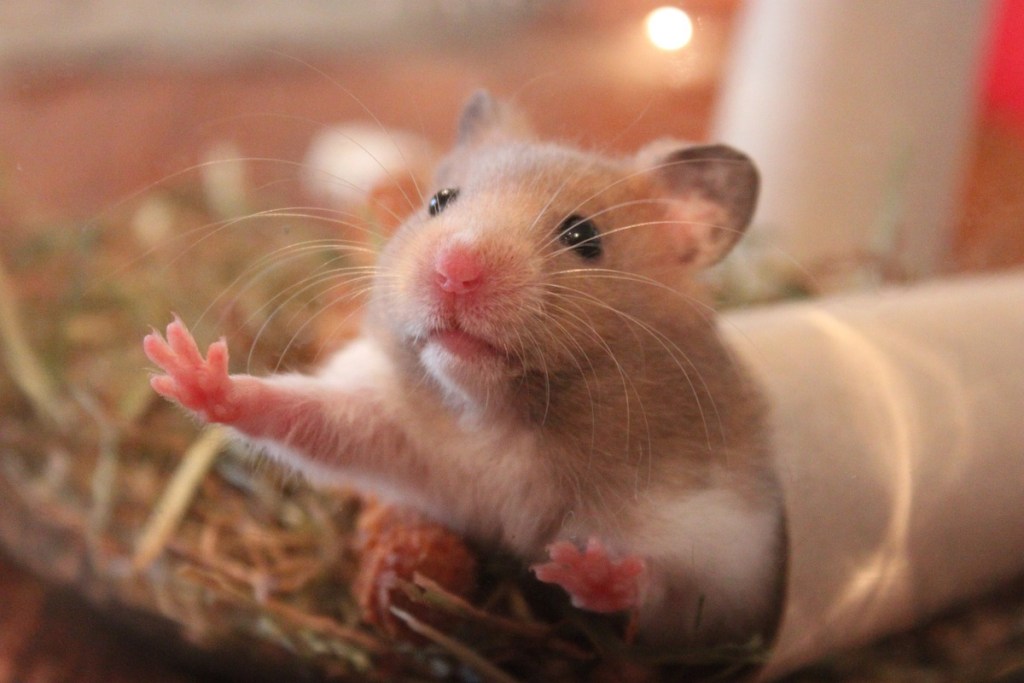It’s certainly a terrifying sight to find your hamster shaking. Just as it would sound the alarm if a human were shivering uncontrollably, so, too, should you leap into action with your pet. However, it can be tricky to nail down the exact cause, and a trip to the vet won’t hurt if you don’t spot an immediate explanation. While illness does lead to the shakes at times, you’ll want to look into a few more of the mundane triggers first to rule that out. When you wonder, “Why is my hamster shaking?” look at these options to determine the issue.

Why is my hamster sitting still and shaking?
No one reason applies in every case, so you need to do a bit of detective work. We’ll start with the most common reasons — which are also the least scary.
He’s frightened
Lots of times when hamsters shake, it’s from fear. Things that don’t look (or smell) scary to you could set your hamster off with seemingly no notice. Try to perceive the world through the eyes of a small pet to figure out what’s troubling him. For example, a dog or cat scent could send him into panic mode even as you struggle to perceive it. Those are his predators! Remove the offending object or beastie and see if he returns to normal.
He went into hibernation
If you can cross fear off the list, think next to the temperature of the room. In the wild, hamsters hibernate, and they’ll immediately slip into that mode when it gets too chilly. You most likely don’t want your hamster to go down for a long sleep, and it probably isn’t safe for him to remain inactive. Maintain a consistent temperature in the room and include a thermometer in or right next to the cage. Select a good area of the house as well that doesn’t have too many drafts and isn’t too close to a radiator. If you do walk into a freezing room and find your little guy zoned out, return the temp to normal (slowly) to spark him out of his hibernation. There will almost certainly be some shaking during this process, but it’s not a concern. Once he gets back to normal, it’ll stop. If it doesn’t, that means something else is going on.
It’s a medical condition
Hamsters get colds — sometimes lots of them. Examine his physical symptoms aside from the shaking to check for the sniffles. Seriously, he might sneeze and cough and get a runny nose just like you would. While hamster sniffles are a bit cute, the little guys can actually die from colds or other infections. Don’t just check his sweet face, though; you also want to monitor his backside and spot diarrhea or other stomach problems quickly (especially wet tail, which kills hamsters in less than 48 hours). The shaking could stem from diabetes, nervous system disorders, or stroke. Pay close attention to all the symptoms as a whole to narrow it down.

How do you know if a hamster is dying?
Again, we do suggest seeking out an expert here. Especially if you can’t quite find the definitive origin of his shakes. Sadly, sometimes shaking, particularly when combined with lethargy, can indicate that his life has come to an end. In addition, many pet rodents will begin to hide more as they wind down. Give him a checkup on your own and try to spot glaring issues like skin problems or weight loss that might tell you his time is up. And remember that hamsters live only a few years — if yours is pushing 4, it’s more likely to be serious.
Anytime you discover a shaking hamster, you should go through a process of elimination and start with the simple explanations first. But before you freak out, it could be nothing at all. Don’t mistake excited quivers for true scary shakes. If you just got your pet and he seems jumpy, that may be totally normal. Once you get used to each other, you’ll know what his baseline is. When your hamster can’t stop trembling, that’s when you should investigate and get to the root of the problem, hopefully with the help of an animal doc.
Editors' Recommendations
- A simple guide to what to feed tadpoles in your aquarium
- Is my rabbit pregnant? 5 telltale signs you should know
- What you need to know about sugar gliders before you get an exotic pet
- Bunny care 101: If Easter inspires you to adopt a rabbit, read this first
- Are female betta fish worth it? Here’s why you should consider getting one of these pretty fish




